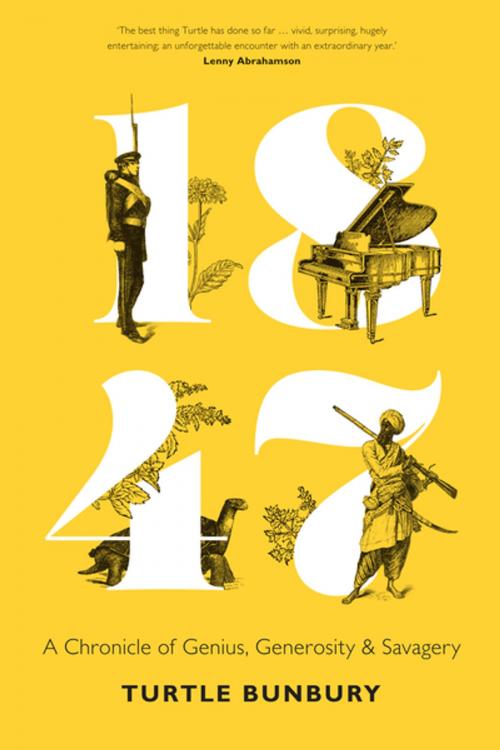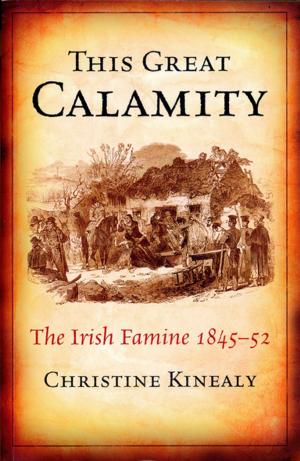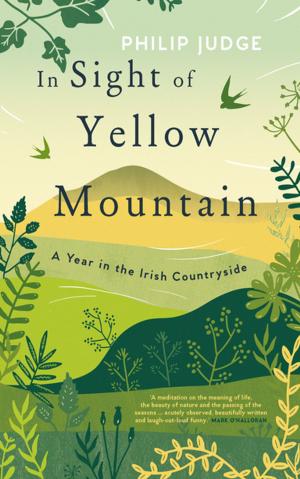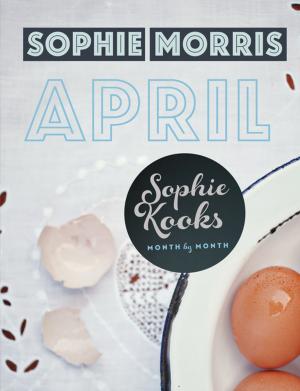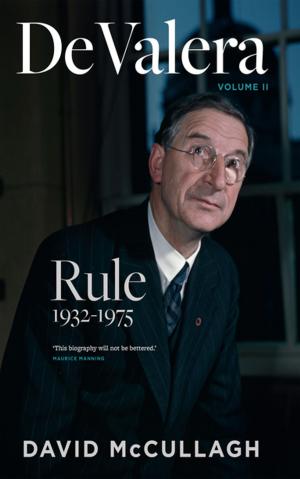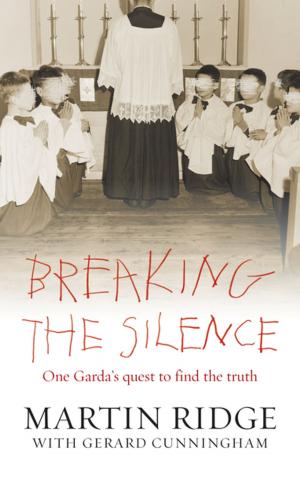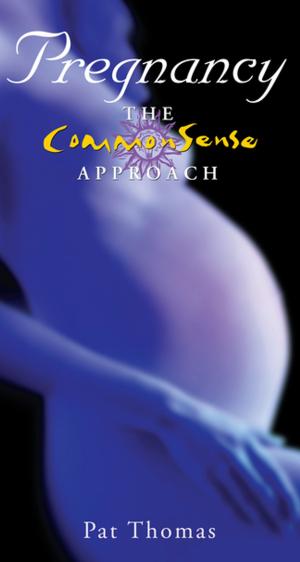| Author: | Turtle Bunbury | ISBN: | 9780717168439 |
| Publisher: | Gill Books | Publication: | September 9, 2016 |
| Imprint: | Gill Books | Language: | English |
| Author: | Turtle Bunbury |
| ISBN: | 9780717168439 |
| Publisher: | Gill Books |
| Publication: | September 9, 2016 |
| Imprint: | Gill Books |
| Language: | English |
Capture the spirit of an industrial, social and cultural revolution through this invigorating collection of historical portraits from the dawn of the industrialised world!
Though it feels like an era marooned almost irretrievably in the distant past, the 1840s &ndash a decade of blistering social and cultural change – is only two lifetimes removed from the present day. There are, in other words, people alive today who knew and associated with people for whom the Gold Rush and the Great Famine were living memories.
Having grown up in an Irish country house built that year, 1847 has long proven the source of inspiration and fascination for historian Turtle Bunbury. And in a bid to once more grasp the spirit of the age, he has over the years assembled an archive of the most remarkable stories from those twelve momentous months.
Bristling with all manner of human life and endeavour, from American pioneers and German entrepreneurs to circus charlatans and down-and-out songwriters, 1847 is a collection of his most remarkable discoveries to date and a stirring portrait of a chaotic world surging towards the modern. By turns poignant, outlandish, curious and provocative, this is history at its most invigorating – as panorama, as epic.
Praise for The Glorious Madness:
‘An absolutely brilliant book.’
Patrick Geoghegan, Associate Professor in History at Trinity College, Dublin
‘Turtle Bunbury’s open-handed, clear-sighted and finely written book comes fresh and, I might almost say, redeemed out of the moil and storm of controversy that surrounded the topic of the war, in a thousand different guises in the decades since its end. Turtle holds out his hand in the present, seeking the lost hands of the past, in darkness, in darkness, but also suddenly in the clear light of kindness – in the upshot acknowledging their imperilled existence with a brilliant flourish, a veritable banner, of wonderful stories.’
Sebastian Barry, author of The Secret Scripture
‘Turtle continues the wonderful listening and yarn-spinning he has honed in the Vanishing Ireland series, applying it to veterans of the First World War. The stories he recreates are poignant, whimsical and bleakly funny, bringing back into the light the lives of people who found themselves on the wrong side of history after the struggle for Irish independence. This is my kind of micro-history.’
John Grenham, The Irish Times
Praise for Vanishing Ireland:
‘A perfect symbiosis between text and images – both similarity affectionate, respectful, humorous, slightly melancholic but never sentimental or nostalgic. This is invaluable social history.’
Cara Magazine
‘This is a beautiful and remarkably simple book that will melt the hardest of hearts. Bunbury has a light writing style that lets his interviewees, elderly folk from around the country, tell their stories without interference. It’s neither patronising nor overly romantic about the past; just narrating moving tales – The portraits by Fennell are striking, warm and dignified, with a feeling of being invited into people’s lives.’The Sunday Times
Capture the spirit of an industrial, social and cultural revolution through this invigorating collection of historical portraits from the dawn of the industrialised world!
Though it feels like an era marooned almost irretrievably in the distant past, the 1840s &ndash a decade of blistering social and cultural change – is only two lifetimes removed from the present day. There are, in other words, people alive today who knew and associated with people for whom the Gold Rush and the Great Famine were living memories.
Having grown up in an Irish country house built that year, 1847 has long proven the source of inspiration and fascination for historian Turtle Bunbury. And in a bid to once more grasp the spirit of the age, he has over the years assembled an archive of the most remarkable stories from those twelve momentous months.
Bristling with all manner of human life and endeavour, from American pioneers and German entrepreneurs to circus charlatans and down-and-out songwriters, 1847 is a collection of his most remarkable discoveries to date and a stirring portrait of a chaotic world surging towards the modern. By turns poignant, outlandish, curious and provocative, this is history at its most invigorating – as panorama, as epic.
Praise for The Glorious Madness:
‘An absolutely brilliant book.’
Patrick Geoghegan, Associate Professor in History at Trinity College, Dublin
‘Turtle Bunbury’s open-handed, clear-sighted and finely written book comes fresh and, I might almost say, redeemed out of the moil and storm of controversy that surrounded the topic of the war, in a thousand different guises in the decades since its end. Turtle holds out his hand in the present, seeking the lost hands of the past, in darkness, in darkness, but also suddenly in the clear light of kindness – in the upshot acknowledging their imperilled existence with a brilliant flourish, a veritable banner, of wonderful stories.’
Sebastian Barry, author of The Secret Scripture
‘Turtle continues the wonderful listening and yarn-spinning he has honed in the Vanishing Ireland series, applying it to veterans of the First World War. The stories he recreates are poignant, whimsical and bleakly funny, bringing back into the light the lives of people who found themselves on the wrong side of history after the struggle for Irish independence. This is my kind of micro-history.’
John Grenham, The Irish Times
Praise for Vanishing Ireland:
‘A perfect symbiosis between text and images – both similarity affectionate, respectful, humorous, slightly melancholic but never sentimental or nostalgic. This is invaluable social history.’
Cara Magazine
‘This is a beautiful and remarkably simple book that will melt the hardest of hearts. Bunbury has a light writing style that lets his interviewees, elderly folk from around the country, tell their stories without interference. It’s neither patronising nor overly romantic about the past; just narrating moving tales – The portraits by Fennell are striking, warm and dignified, with a feeling of being invited into people’s lives.’The Sunday Times
